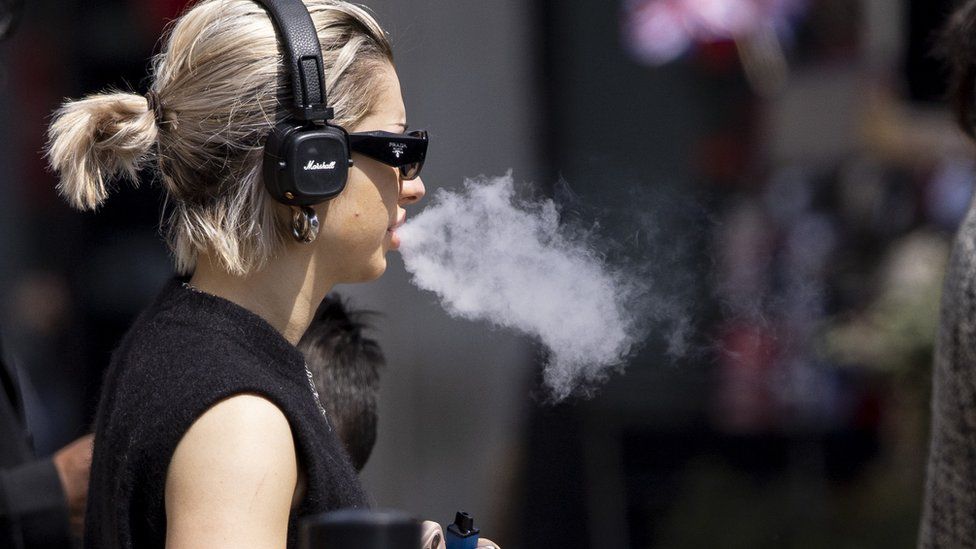-

-
-
Loading

Loading

Australia is taking steps to address the issue of nicotine addiction in children by implementing a ban on disposable vapes. Starting from January, the importation of these single-use vapes will be prohibited. In addition to this, new laws will be put in place to prevent the manufacturing, advertising, and supply of single-use vapes within the country. This move is part of a wider effort to completely phase out recreational vaping. While vaping has been marketed as a way to quit smoking, the country's health minister argues that it has resulted in a new generation of nicotine dependency. Vapes, or e-cigarettes, are battery-powered devices that contain cartridges filled with liquids containing nicotine, artificial flavorings, and various other chemicals. Since 2021, it has been illegal for Australians to purchase or import e-cigarettes or nicotine vapes without a doctor's prescription. However, addiction rates have continued to rise despite these restrictions. A study conducted by the University of Sydney revealed that over a quarter of teenagers aged 14-17 have tried vaping, and research from Australia's Cancer Council charity discovered that nine out of 10 teenagers in the same age group found it easy to access nicotine vapes. In response to these concerning statistics, Mark Butler, the federal health minister leading the ban, has declared that all Australian governments are committed to tackling the growing vaping problem among young people. The Australian government had previously expressed its intention to phase out the use of single-use vapes, but until now, no specific timeline had been provided. Mr. Butler announced that the ban on importing disposable vapes would commence on January 1st, and by March, refillable non-therapeutic vapes would also be prohibited. Importers and manufacturers of therapeutic vapes will be subject to stricter government regulations regarding flavors, nicotine levels, and packaging. Experts have cautioned that more research is needed to fully understand the long-term effects of vaping. Studies from Johns Hopkins University have linked vaping to chronic lung disease and asthma, while Australian scientists studying vape liquids have warned of the presence of chemicals that can harm lung health. Australia's decision to ban disposable vapes follows closely after New Zealand's government repealed its groundbreaking smoking ban in order to fund tax cuts.